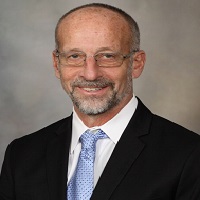
David I Smith
Mayo Clinic, USA
Title: Whole Genome sequencing to study the role of HPV integration in Oropharyngeal squamous cell carcinoma
Biography
Biography: David I Smith
Abstract
High-risk variants of human papillomavirus (HPV) are the major causative factor in the development of cervical cancer. These viruses are also responsible for a number of other anogenital cancers and are increasingly involved in the development of a completely different cancer oropharyngeal squamous cell carcinoma (OPSCC). Unlike cervical cancer, however, OPSCC has other risk factors most notably smoking or other carcinogenic exposures. In an attempt to study how HPV might be involved in the development of OPSCC we have been using two different whole genome sequencing strategies to study the molecular alterations that occur during the development of HPV-positive OPSCCs. The first is mate-pair next-generation sequencing (MP-Seq) on the Illumina sequencing platform. The second is 30X whole genome sequencing on the BGI (Complete Genomics) sequencing platform. Using MP-Seq we have found that HPV integration into the human genome only occurs in 30% of HPVpositive OPSCCs, which is quite distinct from what is observed in cervical cancer. We have also found that there are instances where HPV has integrated into the human genome, but that there remains a high copy number of extrachromosomal HPV sequences present, something that is also not usually found in cervical cancer. Using 30X whole genome sequencing we have been attempting to characterize the structure at and around individual HPV integrations. We have also used this sequencing to study other alterations that occur throughout the genome of these OPSCCs. Our work reveals that HPV may be playing different roles in the development of different OPSCCs. This is an excellent model to study the earliest events in the development of cancer and how HPV facilitates carcinogenesis.

